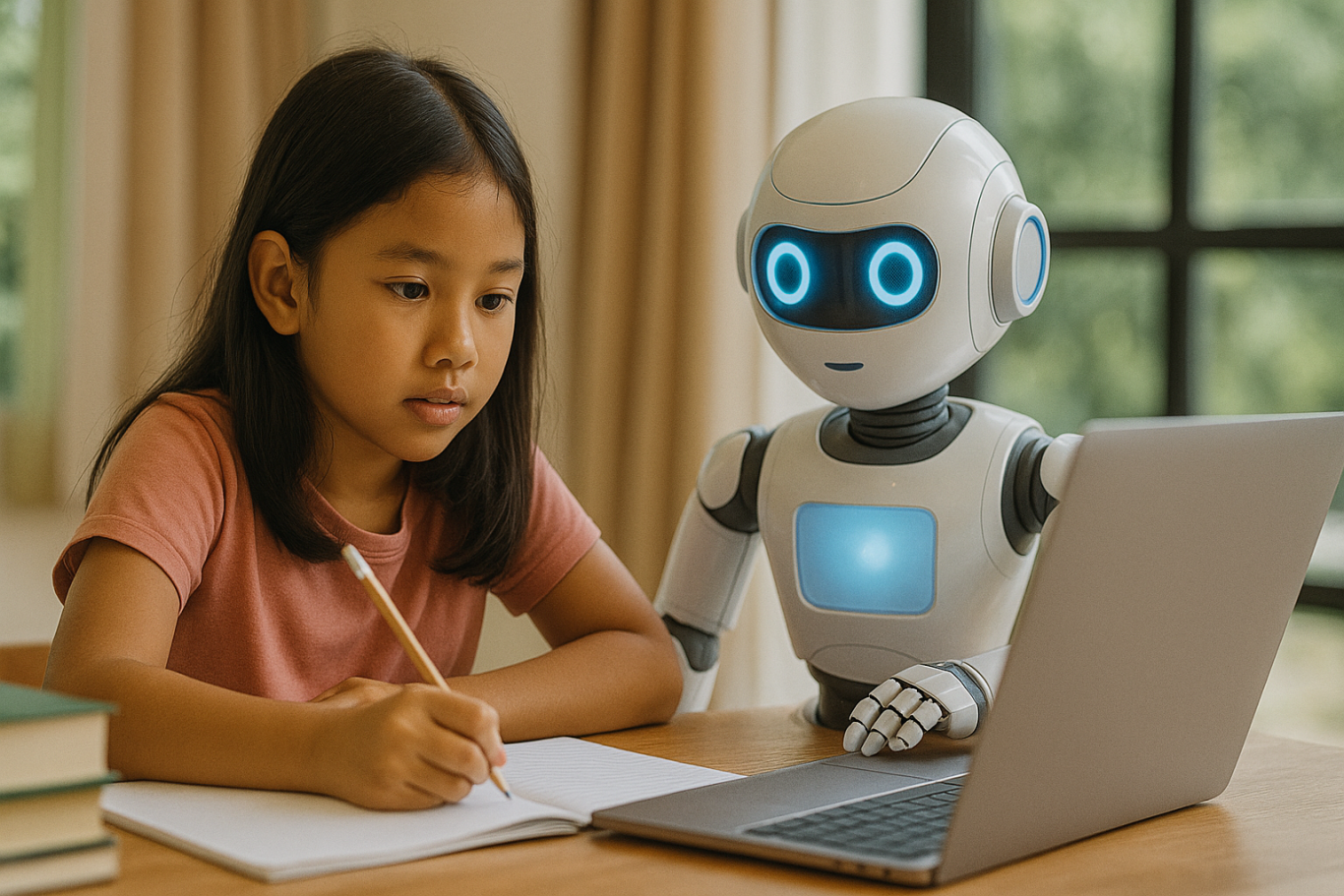What Are the Importance of AI in Kids Education in 2025?
As we move deeper into the digital age, many educators and parents are asking: what are the importance of AI in kids education? With artificial intelligence influencing everything from content recommendations to personalized learning tools, understanding its role in education has become a pressing issue.
Recent studies show that a majority of parents believe AI will be essential for their children’s future success. However, many are unsure if schools are ready to teach these skills effectively. Exploring global efforts, benefits, and challenges can help clarify the importance of AI in kids education and how to implement it responsibly.
Global Trends in AI and Education

Several countries are leading the way in integrating AI into school curriculums. China has made AI a required subject in elementary and high schools, while South Korea has developed adaptive digital textbooks powered by AI to match student progress and needs.
These initiatives reflect a growing consensus that the importance of AI in kids education goes beyond theory. Nations like Australia and Estonia are also developing policies to ensure responsible and ethical use of AI in classrooms, showing how seriously the world is treating this transition.
Benefits of AI for Young Learners

The importance of AI in kids education lies in its ability to personalize learning. AI-based tools can adapt materials to suit individual student performance, helping children stay engaged, confident, and supported throughout their academic journey.
In addition to personalization, AI fosters problem-solving, creativity, and critical thinking. When children explore how algorithms work or build a simple chatbot, they’re developing cognitive skills that go beyond technology. These abilities are crucial in preparing them for future roles in a digital-first world.
Addressing Challenges and Risks

Despite its potential, there are challenges in adopting AI in education. Some schools lack internet access or up-to-date devices, and many teachers are not yet trained to use AI-driven platforms. This digital divide can limit access to the benefits of AI for students in underserved areas.
There are also ethical issues to consider, such as data privacy and algorithmic fairness. These concerns further emphasize the importance of AI in kids education being accompanied by strong policies, teacher training, and clear usage guidelines to prevent harm and misuse.
Why Teachers Still Matter

While AI can enhance education, it cannot replace human connection. Teachers provide mentorship, emotional support, and moral guidance that technology cannot deliver. Children need interpersonal relationships in learning environments to grow socially and emotionally.
Understanding the importance of AI in kids education also means recognizing the role of teachers in managing that technology. When used correctly, AI is not a substitute, but a support system that helps teachers personalize and strengthen the learning experience.
Conclusion: A Balanced Approach to Digital Learning
The importance of AI in kids education is clear, but it must be implemented carefully. Around the world, schools are beginning to adopt AI-powered solutions, yet success depends on infrastructure, equity, and human-centered policies.
By combining innovation with empathy, we can create education systems that prepare children for the future without losing sight of what makes learning meaningful. The right mix of technology and teaching will ensure kids are not only tech-savvy, but also thoughtful, curious, and ethical learners.
Try a Safe and Smart Learning Platform for Kids
For those ready to start introducing technology to children, Timedoor Academy offers coding and AI programs designed for young learners. These courses are interactive, age-appropriate, and can be a great entry point into digital education.

Ingin tahu detail program?
You can explore the program with a free trial and see how your child responds to engaging, structured learning supported by smart technology. Timedoor Academy makes it easy to experience the importance of AI in kids education firsthand.